#old uppsala
Explore tagged Tumblr posts
Video
An Autumn Path by Henrik Sundholm Via Flickr: Early autumn in Gamla Uppsala, Sweden.
#gamla uppsala#old uppsala#landscape#uppsala högar#kungshögarna#trees#autumn#fall#leaves#fence#grass#lawn#hills#historic#history#historical#path#overcast#vignette#hdr#uppsala#sverige#sweden#mound#flickr
28 notes
·
View notes
Text

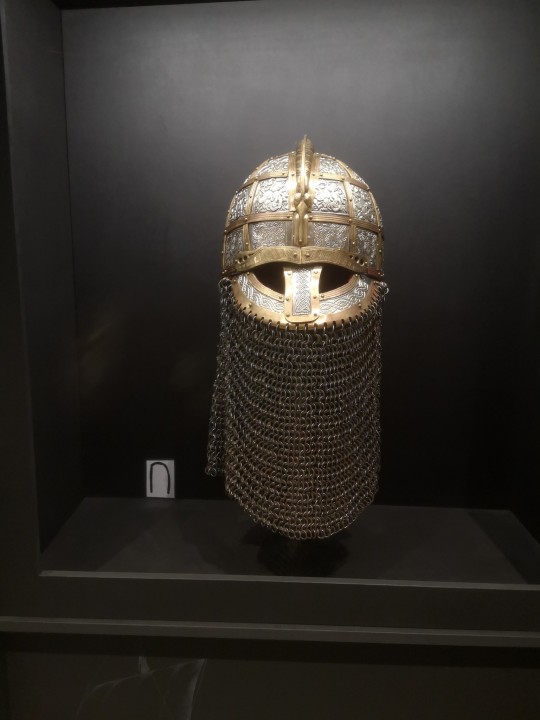


Went to a small showcasing at Gamla Uppsala today and had a wonderful time. The weapons are replicas of findings from the 7th century, so early viking age. The picture of the helmet and the third pic with the horn, shield buckle etc. was from the museum while the other two pics are from the showcasing and does not belong to the museum. If you haven't visited old Uppsala then I definitely recommend you do!
#Sweden#Sverige#Gamla Uppsala#Old Uppsala#History#Weapons#Viking#My Post#Scandinavia#Norse Pagan#Nordic#Norse
26 notes
·
View notes
Photo







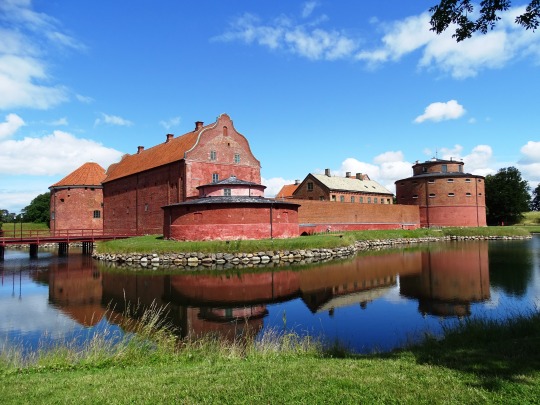

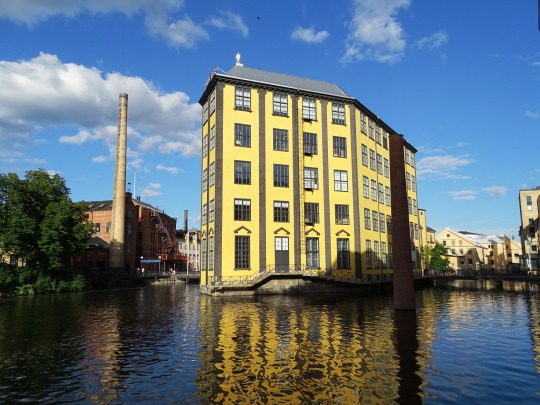
The National Day of Sweden (Swedish: Sveriges nationaldag) is a national holiday observed annually in Sweden on 6 June.
#Bohus Fortress#Norrköping#Byrums Raukar#Öland#Malmö#travel#Landskrona Castle#Smögenbryggan#Kattegat#Lake Överuman#Swedish Lapland#Old Uppsala Archaeological Area#landscape#cityscape#archaeology#Swedish history#countryside#vacation#summer 2020#Sverige#Sweden#Scandinavia#Northern Europe#National Day of Sweden#6 June#Sveriges nationaldag
28 notes
·
View notes
Text






Midsommaraftons firande. ☀️🌿 Midsummer celebrations.
June 2023
Enåkers hembygdsgård, Runhällen, Uppland, Sweden
#sweden#swedish#my photos#uppsala#my life#enjoythelittlethings#nature#gaylife#sunlight#midsummer#midsommar#midsummers#swedish traditions#swedish culture#swedishfika#old houses#culturalheritage#cultural history#culture#swedish stuff#swedish summer#summer flowers#flowers#kanelbullar#cinnamon buns#time for coffee#celebration#holiday#gay#old house
4 notes
·
View notes
Text
I think the SL Pendeltåg was created by the Christian god to torture people in hell
#why is everything about it terrible#oh it’s a short train so this is probably not crowded times#WRONG#you’ve also underestimated how crowded a train can be#most of the people using this train travel for an hour yet the seats are only bearable for about 10 minutes#not to mention the lack of luggage space and there being no trays or tables and the weird af configuration of seats and the terrifying gap#makes me appreciate mälartåg so much more#comfortable seats every seat has a tray there are outlets and there’s a little platform that extends over the gap when it stops#you can tell the pendeltåg is old af not only by how much it sucks but by the fact it uses decor that Uppsala buses used to love#but the bus seats were and still are comfortable!
0 notes
Text

A very old apple tree - I took this photo in Uppsala(Sweden)
#myphotography#original photography on tumblr#sunrise#sverige#fineartphotography#NaturePhotography#naturelovers#nature#naturelover#blackandwhitephotography#monochrome#blackandwhitephoto#blackandwhite
447 notes
·
View notes
Text
Every Pagan Holiday

JANUARY
KALENDS
1st January
Origins: Ancient Greece/Rome
Observed by: Hellenic/Roman polytheists
Honouring Janus/Juno, first day of the Year. Kalends brought us the word 'calendar'.
ÞORRABLÓT (THORRABLÓT)
End of January/beginning of February
Origins: Iceland
Observed by: Heathens, Asatru
Midwinter Festival honouring Thor, usually by feasting and poetry.

FEBRUARY
IMBOLC
2nd February
Origins: Celtic polytheism /Ireland, as St. Brigid's Day
Observed by: Most neopagans, Wiccans, Druids, Asatru (as Charming of the Plow)
Imbolc is the most widely known and observed pagan holiday in the months of January and February. It falls at the beginning of spring/end of the winter for the Celtic peoples; marking the changing of the seasons, as most holidays do. St. Brigid is a Christianised form of or inspired by the Celtic fertility goddess Brigid who is celebrated on this day.
PARENTALIA
13th-21st February
Origins: Ancient Rome
Observed by: Greco-Roman polytheists
Translating to 'Ancestors Day', Parentalia is a nine-day celebration of deceased ancestors. Historically it was observed by feasting and making offerings and sacrifices to the dead and spirits of the underworld.
VÁLI'S BLOT
14th February
Origins: Old Norse
Observed by: Heathens, Asatru, Norse polytheists
Váli's Blot is considered by some Asatru to be the Norse equivalent of Valentine's Day but is widely acknowledged as a season changing festival. A day for marriage and celebrating with family and friends, and for remembrance of Váli, the son of Odin who defeated Höðr on this day.
LUPERCALIA
15th February
Origins: Ancient Rome
Observed by: Greco-Roman polytheists
Festival thought to honour a wolf who raised abandoned princes, celebrated originally by sacrificing goats to the gods, feasting, and, for fertility, nudity and fornication.
LESSER ELEUSINIAN MYSTERIES
17th-23rd February
Origins: Ancient Greece
Observed by: Hellenic polytheists
Initiation to the cult of Persephone and Demeter by sacrificing a pig. Prelude to Greater Mysteries, initiations held on these dates. Once completed, initiates could then move onto Greater Mysteries in the autumn.
ANTHESTERIA
27th February - 1st March 2021
Origins: Ancient Greece
Observed by: Hellenic polytheists
Athenian festivals dedicated to Dionysus and the dead. Held around the full moon in the month of Anthesterion, which in the Gregorian calendar this year roughly translates to 27th February.
THE DISTING/DÍSABLÓT
End of February/beginning of March
Origins: Uppsala, Sweden
Observed by: Heathens, Asatru, Norse polytheists
Celebration of Valkyries and other female spirits, called dísir. Sacrifices were made for a good harvest. Celebrated still by an annual market in Sweden.

MARCH
KALENDS
1st March
Origins: Ancient Greece/Rome
Observed by: Hellenic/Roman polytheists
Honouring the god Mars/Ares. Kalends brought us the word 'calendar'.
OSTARA/EARRACH
20th March
Origins: Anglo Saxon paganism, popularised as Ostara by Wicca
Observed by: Anglo Saxon Pagans, Wiccans, Neopagans, Druids (as Alba Eilir), Heathens (as Summer Finding), Ásatrú (as Sigrblót)
The northern hemisphere's vernal equinox, the word Ostara was introduced though Wicca and named for the goddess Eostre. Surprisingly unrelated to Easter in all but name, Ostara symbolises the beginning of spring. As a seasonal holiday it is widely celebrated by many different groups of pagans.
RAGNAR LODBROK'S DAY
28th March
Origins: Icelandic Sagas
Observed by: Ásatrú
Day of remembrance for Ragnar Lodbrok, Viking King of legend

APRIL
KALENDS/VENERALIA
1st April
Origins: Ancient Greece/Rome
Observed by: Hellenic/Roman polytheists
Celebration of the first of the month, this one honouring the goddess, Venus.
REMEMBRANCE FOR HAAKON SIGURDSSON
9th April
Origins: Norway, C9th
Observed by: Ásatrú
Day of remembrance for ruler of Norway who claimed lineage to Odin in the Icelandic Sagas.
WALPURGISNACHT
30th April
Origins: German Christianity, originally Saint Walpurga was known for banishing witches and other pests
Observed by: LaVeyan Satanists
Anton LaVey chose to celebrate this holiday as a follow up to the spring equinox and due to its past association with witchcraft.
HEXENNACHT (WITCHES' NIGHT)
30th April
Origins: German folklore, as Walpurgisnacht but witches were alleged to convene with the devil in this night
Observed by: Temple of Satan as 'a solemn holiday to honour those who were victimized by superstition'.

MAY
BEALTAINE/BELTANE
1st May
Origins: Celtic (Ireland/Scotland/Isle of Man)
Observed by: Wiccans, Neopagans, Celtic reconstructionist, Ásatrú/Heathens (as May Day)
One of the more well-known pagan festivals, Beltane is a festival of fire and the beginning of the summer. Also widely referred to as May Day, it is celebrated by lighting fires.
KALENDS
1st May
Origins: Ancient Greece/Rome
Observed by: Hellenic/Roman polytheists
Honouring the goddess Maia, for whom the month may have been named.
REMEMBRANCE FOR Guðröðr of Guðbrandsdál
9th May
Origins: C11 Norway, Icelandic Sagas
Observed by: Ásatrú, Norse, heathens
Guðröðr had his tongue removed by Óláfr for rebelling against violent conversion from Norse paganism to Christianity.

JUNE
KALENDS
1st June
Origins: Ancient Greece/Rome
Observed by: Hellenic/Roman polytheists
Anniversary of temples to Juno Moneta (protectress of money, her temple was where coins were made), Mars/Ares (God of war), and the Tempestates (goddesses of storms).
ARRHEPHORIA
3rd Skirophorion (translates to mid-June)
Origins: Ancient Greece
Observed by: Hellenic reconstructionist
Feast in celebration of Athena and fertility.
MIDSUMMER/SUMMER SOLSTICE
21st June
Origins: Agricultural holiday/longest day observed for centuries by many civilisations. Christianity can date to as early as C4th
Observed by: Wiccans/Germanic neopagans (as Litha), Asatru/Heathens, Druids (as Alban Hefin)
One of the main four holidays in the Wheel of the Year and popularised by Wiccans and neopagans as Litha which is taken from the Anglo-Saxon words for June/July, this is the longest day of the year and the middle point and sometimes considered the beginning of summer.

JULY
REMEMBRANCE FOR UNNR/AUD THE DEEP MINDED
9th July
Origins: C9th Iceland
Observed by: Ásatrú, Heathens, Norse reconstructionist
Aud was a traveller in the 9th century moving between Dublin, the Hebrides, Orkney, and finally Iceland following the deaths of her husband and son. This day is to honour her memory.
HERACLEIA
July/August
Origins: Ancient Greece
Observed by: Hellenic polytheists
Festival dedicated to Heracles the demigod and his death, involving feasting and celebration.

AUGUST
LUGHNASADH/LAMMAS
1st August
Origins: Celtic Britain (Ireland, Scotland, Isle of Man)
Observed by: Wiccans, Neopagans, Christians (as Lammas), Ásatrú (as Freyfaxi)
Named for the god Lugh, this festival is one of the Celtic harvest festivals and marks the beginning of the harvesting months. It was celebrated by climbing mountains, bull sacrifice, offerings, and feasting. Handfasting is commonplace with Wiccans in modern times.
REMEMBRANCE FOR REDBAD, KING OF THE FRISIANS
9th August
Origins: C7th Frisia (area of Germany/Netherlands)

SEPTEMBER
NOUMENIA
8th September
Origins: Ancient Greece
Observed by: Hellenic polytheists
Celebration of new Hellenic lunar month. Offerings of honey and incense made to household deities.
REMEMBRANCE FOR HERMANN THE CHERUSCAN
9th September
Origins: C9th CE
Observed by: Heathens, Ásatrú
Hermann the Cheruscan, also known as Arminius of the Cherusci tribe, led the defeat against the Romans at the Battle of Teutoburg Forest and is lauded for saving Eastern Germanic peoples from being conquered by the Roman Empire.
AUTUMN EQUINOX (NORTHERN HEMISPHERE)
22nd September
Origins: 1970s neopaganism
Observed by: Wiccans and Neopagans (as Mabon), Ásatrú (as Winter Finding)
Named Mabon by prominent Wicca and Neopagan Aidan Kelly, after the Welsh mythological figure Mabon ap Moldron, the autumn equinox is one of the harvest festivals and marks the beginning of autumn in the northern hemisphere. Mabon is a relatively new pagan holiday not based on any specific historical festival, but traditionally people around the world would celebrate some kind of harvest festival around the end of September/beginning of October.

OCTOBER
PYANOPSIA
7th October
Origins: Ancient Greece
Observed by: Hellenic polytheists
Pyanopsia, or Pyanepsia, is a festival to honour Apollo, one of the most important deities, God of music, the sun, knowledge, healing, and archery - amongst other things. During the festival, two special offerings would be placed on doorways and carried to the temple. These offerings were a bean stew, and an olive branch wrapped in wool with honeys, pastries and seasonal fruits hanging from it.
REMEMBRANCE FOR LEIF EIRIKSSON
9th October
Origins: C10th CE
Observed by: Heathens, Ásatrú, Norse pagans
Remembrance for Leif and his sister Freydís Eiríksdóttir, children of Erik the Red, who are cited with being the first Norse explorers in North America.
THESMOPHORIA
12th-14th October
Origins: Ancient Greece
Observed by: Hellenic polytheists
Festival held in honour of Demeter Thesmophoros, goddess of agriculture, and her daughter Persephone, goddess of death and life, Queen of the Underworld. Celebrated primarily by women, this festival is linked with fertility, and we know very little about it due to its secretive rites. It is thought that it involved the sacrifice of pigs (although some sources say women), and abstinence.
REMEMBRANCE FOR ERIK THE RED
28th October
Origins: C9th CE
Observed by: Heathens, Ásatrú, Norse pagans
Erik the Red, probably named for the colour of his hair and beard, was the first permanent European settler in Greenland. His children were explorers too, who went to America, and although his wife converted to Christianity, Erik remained faithful to his Norse pagan gods.
SAMHAIN (HALLOWE'EN)
31st October-1st November
Origins: Gaelic - Scotland, Ireland, Isle of Man
Observed by: Celtic pagans, Neopagans, Wiccans
Pronounced SOW-in (sow rhyming with cow), Samhain was originally a harvest festival marking the beginning of winter. The day itself is the 1st November, but celebrations begin on October 31st, and this has become the accepted associated day. It's a festival of the dead, where the síthe, fae and spirits, can enter this realm from their own. Wiccans talk of a 'veil' thinning, meaning the boundary between worlds. Similar death related festivals around this time can be noted in other faiths from across the globe, and of course in the modern Hallowe'en.
WINTER NIGHTS (VETRNAETR), ÁLFABLÓT/DÍSABLÓT
31st October
Origins:
Celebrated by: Heathens, Ásatrú, Norse pagans
Winter Nights is mentioned in the Ynglinga Saga as one of the three greatest blessings of the year, the other two being Sigrblót in April, and þorrablót in late Jan/early Feb. Winter Nights is the celebration of the beginning of the winter season; Álfablót is a sacrifice to the elves, and Dísablót a sacrifice to the female spirits (dísir) and Valkyries.

NOVEMBER
REMEMBRANCE FOR SIGRID THE HAUGHTY
9th November
Origins: C9th CE
Observed by: Heathens, Ásatrú, Norse pagans
It is not actually known whether Sigrid Storråda, or Sigrid the Haughty, was an actual historical figure, an amalgamation of a few, or simply a myth. The lore goes that she was proposed to multiple times and turned down many but went on to orchestrate conflict when a potential suitor - Olaf Tryggvason, King of Norway - attempted to convert her to Christianity.

DECEMBER
REMEMBRANCE FOR EGILL SKALLAGRÍMSSON
9th December
Origins: C10th CE
Observed by: Heathens, Ásatrú, Norse pagans
Day celebrating the poet, farmer, and berserker Egill Skallagrímsson, who is recalled in The Icelandic Sagas by Snorri Sturluson. Egill is known for his many killings and escaping death by writing an epic poem after being captured when washing up on our Northumberland coastline.
SATURNALIA
17th - 23rd December
Origins: Ancient Rome
Observed by: Roman polytheists, some Hellenic
Like Yule and Lesser Dionysia, Saturnalia was the Roman winter festival celebrating the coming return of the sun and honouring the god Saturn. The standard feasting and drinking feature, and slaves would be treated as equals like Dionysia. Saturnalia is another festival cited as being picked up by Christians and used as inspiration for Christmas.
WINTER SOLSTICE (YULE/MIDWINTER)
21st December
Origins: Germanic nations, as early as C4th CE
Observed by: Norse pagans, Wiccans, Neopagans, LaVeyan Satanists, Ásatrú, Heathens, many Germanic nonpagan peoples
Yule is the midwinter festival known commonly among pagans as a time for feasting, being with loved ones, remembering ancestors, and looking forward to the return of the light and warmer days. Many pagans will celebrate Yule for more than one day, some celebrating a week either side, some for longer, up to two months, and some for twelve days afterwards. True Yule would have originally been in January for midwinter, but King Haakon the Good
moved it to coincide with the Christian celebrations in the 10th century, as told in the Ynglinga Saga.
On the 24th of December, Anglo Saxons are said to have celebrated 'Mothers Night' honouring female ancestors.
RURAL/LESSER DIONYSIA
End of December/beginning of January
Origins: Ancient Greece
Observed by: Hellenic polytheists
Smaller festival honouring the god Dionysus (Greater Dionysia took place in cities at the end of winter). Feasting, mask wearing to stop distinction between classes so that everyone could feel equal, sacrifices, parades, and phallic display were all used to celebrate.
#wheel of the year#wiccan#pagan#heathen#greek#mythology#holidays#religious holidays#pagan holidays#non-Abrahamic holidays#witch#witchcraft#witchblr#pagan wicca#polytheism#paganism#witches#witch holidays#witches holidays#pagan witch
277 notes
·
View notes
Text
Paradise Lost: How John Milton's 1667 work influenced "Hazbin Hotel"
I've been thinking about why the "fruit of knowledge" in Hazbin Hotel is depicted as an apple, as opposed to another fruit that would've been more accurate to the Middle East during the Fall of Man, as well as how Paradise Lost by John Milton (1667) influenced the show.

Per one source:
"Because the Hebrew Bible describes the forbidden fruit only as 'peri', the term for general fruit, no one knows [what exactly type of fruit it was]. It could be a fruit that doesn't exist anymore. Historians have speculated it may have been any one of these fruits: pomegranate, mango, fig, grapes, etrog or citron, carob, pear, quince, or mushroom."
Per Wikipedia:
"The pseudepigraphic Book of Enoch describes the tree of knowledge: 'It was like a species of the Tamarind tree, bearing fruit which resembled grapes extremely fine; and its fragrance extended to a considerable distance. I exclaimed, How beautiful is this tree, and how delightful is its appearance!' (1 Enoch 31:4)."
In Jewish and Islamic traditions, the "fruit of knowledge" is commonly identified with grapes. The Zohar explains that Noah attempted (but failed) to rectify the sin of Adam by using grape wine for holy purposes. Today, the "Noah grape" is still used to make white wine.

Furthermore:
"The association of the pomegranate with knowledge of the underworld as provided in the Ancient Greek legend of Hades and Persephone may also have given rise to an association with knowledge of the 'otherworld', tying-in with knowledge that is forbidden to mortals. It is also believed Hades offered Persephone a pomegranate to force her to stay with him in the underworld for 6 months of the year. Hades is the Greek god of the underworld, and the Bible states that whoever eats the forbidden fruit shall die."

So, how then did the apple become the foremost symbol of the "fruit of knowledge"? You can partly thank Paradise Lost by English poet John Milton, a work which the lore of Hazbin Hotel is based off of.
Milton published the book in 1667, a time when the hedonistic Restoration era was in full swing. The exiled King Charles II was restored to the throne as King of England in 1660, and was a party animal, with dozens of mistresses, and nicknamed both the "playboy prince" and "Old Rowley", the latter after his favorite lustful stallion.
However, the association of the "fruit of knowledge" began with a Latin pun long before Milton immortalized the association in Paradise Lost. Per the linked article above by Nina Martyris for NPR:
"In order to explain, we have to go all the way back to the fourth century A.D., when Pope Damasus ordered his leading scholar of scripture, Jerome, to translate the Hebrew Bible into Latin. Jerome's path-breaking, 15-year project, which resulted in the canonical 'Vulgate', used the Latin spoken by the common man. As it turned out, the Latin words for evil and apple are the same: 'malus'.
[...] When Jerome was translating the 'Tree of the Knowledge of Good and Evil', the word 'malus' snaked in. A brilliant but controversial theologian, Jerome was known for his hot temper, but he obviously also had a rather cool sense of humor.
'Jerome had several options,' says Robert Appelbaum, a professor of English literature at Sweden's Uppsala University. 'But he hit upon the idea of translating 'peri' as 'malus', which in Latin has two very different meanings. As an adjective, 'malus' means 'bad' or 'evil'. As a noun it seems to mean an apple, in our own sense of the word, coming from the very common tree now known officially as the 'Malus pumila'. So Jerome came up with a very good pun.'
The story doesn't end there. 'To complicate things even more,' says Appelbaum, 'the word 'malus' in Jerome's time, and for a long time after, could refer to any fleshy seed-bearing fruit. A pear was a kind of 'malus'. So was the fig, the peach, and so forth.'
Which explains why Michelangelo's Sistine Chapel fresco features a serpent coiled around a fig tree. But the apple began to dominate Fall artworks in Europe after the German artist Albrecht Dürer's famous 1504 engraving depicted the First Couple counterpoised beside an apple tree. It became a template for future artists such as Lucas Cranach the Elder, whose luminous Adam and Eve painting is hung with apples that glow like rubies.
Milton, then, was only following cultural tradition. But he was a renowned Cambridge intellectual fluent in Latin, Greek and Hebrew, who served as secretary for foreign tongues to Oliver Cromwell during the Commonwealth. If anyone was aware of the 'malus' pun, it would be him, and yet he chose to run it with it. Why?
Appelbaum says that Milton's use of the term 'apple' was ambiguous. 'Even in Milton's time the word had two meanings: either what was our common apple, or, again, any fleshy seed-bearing fruit. Milton probably had in mind an ambiguously named object with a variety of connotations as well as denotations, most but not all of them associating the idea of the apple with a kind of innocence, though also with a kind of intoxication, since hard apple cider was a common English drink.'
It was only later readers of Milton, says Appelbaum, who thought of 'apple' as 'apple', and not any seed-bearing fruit. For them, the forbidden fruit became synonymous with the 'malus pumila'. As a widely read canonical work, 'Paradise Lost' was influential in cementing the role of apple in the Fall of Man story."
To tie this back into John Milton's relationship with King Charles II of England, as mentioned, Milton originally served Oliver Cromwell, Lord Protector of England, and the English Commonwealth, which was formed with the overthrow and execution of King Charles I on 30 January 1649, following the bloody English Civil War (1642 – 1651).
The King's two sons - the newly-christened King Charles II, the elder, and James, Duke of York (King James II), the younger - fled into exile on the European continent. However, with the death of Oliver Cromwell on 3 September 1658 came the 2-year-long dissolution of the English Commonwealth, and the restoration of the monarchy.
As for Milton himself, we can look to an article by Bill Potter.
Milton, born on 9 December 1608, was around 51-52 years old when King Charles II was restored to the throne. He attended Christ's Church, Cambridge in his youth, and mastered at least six languages, as well as history and philosophy; making him, perhaps, the most knowledgeable poet in history. He spent more than a year travelling across Europe, conversing with and learning from intellectuals, linguists, poets, and artists, including the famous Galileo Galilei.
However, Milton was a controversial figure of his time, being unafraid to criticize institutions of authority; arguing that "divorce was Biblical", for which he was routinely condemned; joining the Puritans; penning the Areopagitica, a treatise on liberty in favor of Parliament and the Roundhead rebels, during the reign of King Charles I, arguing that the King must be held accountable by the people; and agreed with and justified the murder of King Charles I, for which Parliament hired him in 1649 as a propagandist and correspondence secretary to foreign powers, on account of his fiery manifestos against "the man".
The collapse of the Commonwealth with the death of Oliver Cromwell in 1658 did not deter Milton from continued political writing against the monarchy and the new public sentiment that brought about its Restoration under King Charles II in 1660. On the contrary, Milton - now totally blind, having lost his eyesight by the age of 44 in 1652, a decade earlier - began writing Paradise Lost in 1661, and spent the next six years dictating the work to transcribers.
A supporter of regicide, Milton was also forced into exile himself, and faked his own death, as Charles refused to pardon - and sought to execute - any of those directly involved with his father's murder. Milton's friends held a mock funeral for Milton on 27 August 1660, just months after the coronation of King Charles II on 23 April 1660.
King Charles II commented that he "applauded his [Milton's] policy in escaping the punishment of death [execution for treason] by a reasonable show of dying", but insisted on a public spectacle nonetheless by having Milton's writings burned by the public hangman.
After eventually obtaining a general pardon from King Charles II, Milton was imprisoned, and released, likely due to political friends in high places. He died, aged 64, in 1674. His theological views were sometimes considered heterodox by the best Puritans, and his political views came close to getting him executed on several occasions. His poetry, however, has endured as some of the greatest works in the English language, especially Paradise Lost; much of his greatest work was written during his 22 years of complete blindness.
One of the main factors in King Charles II deciding to grant a pardon to Milton was, ironically, Paradise Lost. While originally written by Milton as a scathing criticism of King Charles II and the monarchy - depicting Lucifer Morningstar as a sympathetic rebel against God, with King Charles II claiming that is right to rule came from "divine ordainment" - Charles II enjoyed the work, and authorized its publication on 20 August 1667. We know this because a 1668 copy of Paradise Lost in royal bindings by Samuel Mearne, bound lovingly in a fine red leather made of goat skins tanned with sumac, and stamped in gold with the royal cypher of King Charles II, was found. The endpapers bore a watermark with the royal arms of Charles II.
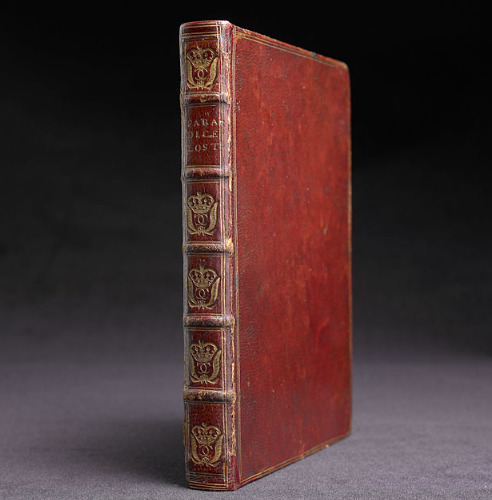
Per one Miltonian scholar: "The most single important event in Milton's life was the event against which he struggled most: the Restoration of Charles II, [and his relationship with the King]. Had it not come, we might have never had Paradise Lost...certainly, we should never have had [it] in [its] present power and significance."
Milton followed up Paradise Lost with Paradise Regained in 1671, three years before his death, with advice for King Charles II, urging the hedonistic Charles to "reign over himself and his passions":
"For therein stands the office of a King, His Honour, Vertue, Merit and chief Praise, That for the Publick all this weight he bears. Yet he who reigns within himself, and rules Passions, Desires, and Fears, is more a King; Which every wise and vertuous man attains: And who attains not, ill aspires to rule Cities of men, or head-strong Multitudes, Subject himself to Anarchy within, Or lawless passions in him which he serves." - John Milton, Paradise Regained, Book II, lines 463-472
To summarize: "If we must have a King back again, my Lord, please try to be a good man, unlike your father, who fell to his pride, [which was also the downfall of Lucifer]."
To quote another source: "Though the passage begins by noting that the office of a King is to bear the weight of public concerns, it is the control of one's private concerns that truly set a King apart as a virtuous character. Indeed, so important is self-command that any wise or virtuous man who attains it is like a king; any king who does not practice [self-command] is nothing more than a mere subject, ruled by anarchy and lawlessness."
Milton's words, too, echo a work written by Charles' grandfather, King James VI/I of Scotland and England: Basilikon Doron ("Royal Gift").
Per Wikipedia:
"'Basilikon Doron' (Βασιλικὸν Δῶρον) means 'royal gift' in Ancient Greek, and was written in the form of a private letter to James' eldest son, Henry, Duke of Rothesay (1594–1612). After Henry's death, James gave it to his second son, Charles, born 1600, later King Charles I. Seven copies were printed in Edinburgh in 1599, and it was republished in London in 1603, when it sold in the thousands.
This document is separated into three books, serving as general guidelines to follow to be an efficient monarch. The first describes a king's duty towards God as a Christian. The second focuses on the roles and responsibilities in office. The third concerns proper behaviour in daily life.
As the first part is concerned with being a good Christian, James instructed his son to love and respect God as well as to fear Him. Furthermore, it is essential to carefully study the Scripture (the Bible) and especially specific books in both the Old and New Testaments. Lastly, he must pray often and always be thankful for what God has given him.
In the second book, James encouraged his son to be a good king, as opposed to a tyrant, by establishing and executing laws as well as governing with justice and equality, such as by boosting the economy. The final portion of the Basilikon Doron focuses on the daily life of a monarch.
All of these guidelines composed an underlying code of conduct to be followed by all monarchs and heads of state to rule and govern efficiently. James assembled these directions as a result of his own experience and upbringing. He, therefore, offered the 'Basilikon Doron' ('Royal Gift') to his son, with the hope of rendering him a capable ruler, and perhaps to pass it down to future generations.
Overall, it repeats the argument for the divine right of kings, as set out in 'The True Law of Free Monarchies', which was also written by James. It warns against 'Papists' (Roman Catholics) and derides Puritans, in keeping with his philosophy of following a 'middle path', which is also reflected in the preface to the 1611 King James Bible. It also advocates removing the Apocrypha from the Bible."
King James VI/I further instructed his son and grandson:
"A good monarch must be well acquainted with his subjects, and so it would be wise to visit each of the kingdoms every three years."
"During war or armed conflict, he should choose old-but-good captains to lead an army of young and agile soldiers."
"In the court and the household, [a royal] should carefully select loyal gentlemen and servants to surround him. When the time came to choose a wife, it would be best if she were of the same religion and had a generous estate. However, she must not meddle with governmental politics, but perform her domestic duties."
"As for inheritance, to ensure stability, the kingdom should be left to the eldest son, not divided among all children."
"Lastly, it is most important...that [a royal] would know well his own craft...to properly govern over his subjects. To do so, [one] must study the laws of the kingdom, and actively participate in the council. Furthermore, [one] must be acquainted with mathematics for military purposes, and world history for foreign policy."
"[A royal] must also not drink and sleep excessively. His wardrobe should always be clean and proper, and he must never let his hair and nails grow long. In his writing and speech, he should use honest and plain language."
King James VI/I further supplemented Basilikon Doron with a written treatise titled The True Law of Free Monarchies: Or, The Reciprocal and Mutual Duty Between a Free King and His Natural Subjects.
"It is believed King James VI/I wrote the tract to set forth his idea of absolutist monarchism in clear contrast to the contractarian views espoused by, among others, James' tutor George Buchanan (in 'De Jure Regni apud Scotos'), [which] held the idea that monarchs rule in accordance of some sort of social contract with their people. James saw the divine right of kings as an extension of the apostolic succession, as both not being subjected by humanly laws."
Milton's own Areopagitica was a follow-up on De Jure Regni apid Scotos by George Buchanan, and also to The True Law of Free Monarchies, as well as the idea of the "divine right of kings". It takes its title in part from Areopagitikos (Greek: Ἀρεοπαγιτικός), a speech written by Athenian orator Isocrates in the 4th century BC.
Most importantly, Milton also wrote on the concept of free will: "Milton's ideas were ahead of his time in the sense that he anticipated the arguments of later advocates of freedom of the press by relating the concept of free will, and choice to individual expression and right."
The concept of free will, too, was a major topic explored in Paradise Lost. Per one source: "In 'Paradise Lost', Milton argues that though God foresaw the Fall of Man, he still didn't influence Adam and Eve's free will. [...] God specifically says that he gives his creatures the option to serve or disobey, as he wants obedience that is freely given [or chosen], not forced. Some critics have claimed that the God of the poem undercuts his own arguments; however, Milton did not believe in the Calvinistic idea of 'predestination' (that God has already decided who is going to Hell and who to Heaven), but he often comes close to describing a Calvinistic God. God purposefully lets Lucifer (Satan) escape Hell, and sneak past Uriel into the Garden of Eden, and basically orchestrates the whole situation so that humanity can be easily ruined by a single disobedient act. In describing the Fall of Man before it happens, God already predicts how he will remedy it, and give greater glory to himself by sending his Son [Jesus Christ] to die, and restore the order of Heaven."
In Hazbin Hotel, Adam also describes the Calvinistic idea of 'predestination', and that "the rules are black and white":

However, "This possible predestination leads to the theory of the 'fortunate fall', which is based on Adam's delight at learning of the eventual coming of the Messiah [from his bloodline]. This idea says that God allowed the Fall of Man, so that he could bring good out of it, possibly more good than would have occurred without the Fall, and be able to show his love and power through the incarnation of his Son. In this way, the free will of Adam and Eve (and Lucifer/Satan) remains basically free, but still fits into God's overarching plan."
However, there is one major flaw with this, and that is that we don't know if Jesus Christ exists within the Hazbin Hotel universe or not. Yet Charlie Morningstar, the daughter of Lucifer Morningstar and Lilith, and the "Princess of Hell", is depicted as a savior-esque figure within the show who, like God in Paradise Lost, encourages lowly sinners to choose obedience to God out of their own free will. More interestingly, Charlie does not come from Adam's bloodline; yet, while Lucifer decries 'free will', Charlie supports 'free will' instead.
Perhaps is is merely because Charlie, being the daughter of Lucifer and Lilith, claims to want to fulfill Lilith's "dream" of humanity being empowered in Hell ("The mind is its own place, it can make Heaven out of Hell, or Hell out of Heaven" - Lucifer, Paradise Lost); however, I think it also stems from Charlie having a genuine belief that 'free will', and people choosing to do good instead of evil, is "good" and "Godly".
True to Paradise Lost, this is also in fulfillment of God's plan; and, according to one fanfiction, why God allowed Charlie to be born to Lucifer and Lilith, so that sinners may be redeemed through Charlie.
For more on differing interpretations of 'free will', I suggest reading: "Free Will and the Diminishing Importance of God's Will: A Study of Paradise Lost and Supernatural" by Kimberly Batchelor (2016)
Excerpt: "'Paradise Lost' –and Milton’s purpose for writing the poem— is rooted deeply in postreformation Arminianism and this is apparent in its employment of free will. Chapter 1 argues that Milton turns to free will as a tool to justify the actions of God. Freedom of choice is God-given, and sets up a morality in which right and wrong are dictated by God. Chapter 2 shows that in 'Supernatural', free will is not given by a higher power; and, in fact, free choice functions as an act of defiance against God's will."
This raises the question: Is 'free will' given by God, using Lucifer as his vessel, in Hazbin Hotel, as in Paradise Lost? Or is 'free will' not given by a higher power; and, in fact, an act of defiance against God?
This brings us back around to our first question: Why is an apple, or 'malus', used to depict the "fruit of knowledge", especially if 'malus' means 'bad or evil', whereas Milton depicts 'free will' as God-given?
Well, for one, Lucifer still chooses to associate himself with apple symbolism and imagery, despite being skeptical of free will:


Based on the introduction to Episode 1, Charlie also views 'free will' as a gift (Miltonian), whereas Lucifer appears to view it as a curse.
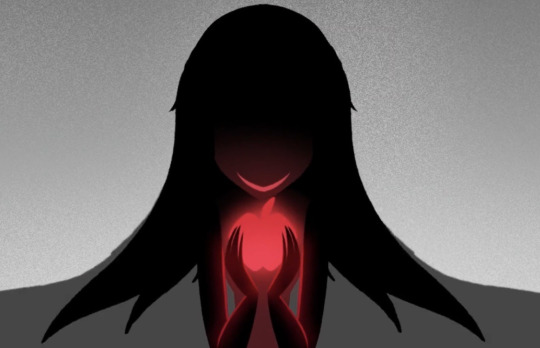
However, Charlie also notes that it was through the 'gift' of free will that the "root of all evil" entered the world, for if mankind could choose to be good, then they could also choose to be evil ('malus').
John Milton states in Paradise Lost: "Of Man's First Disobedience, and the Fruit Of that Forbidden Tree [malus], whose mortal taste Brought Death (evil, malus) into the World, and all our woe."
Thus, the use of an apple specifically is likely a tie-in to what others have been speculating about a character that series creator Vivienne Medrano (Vivziepop) alluded to a while back: "The Root of All Evil".
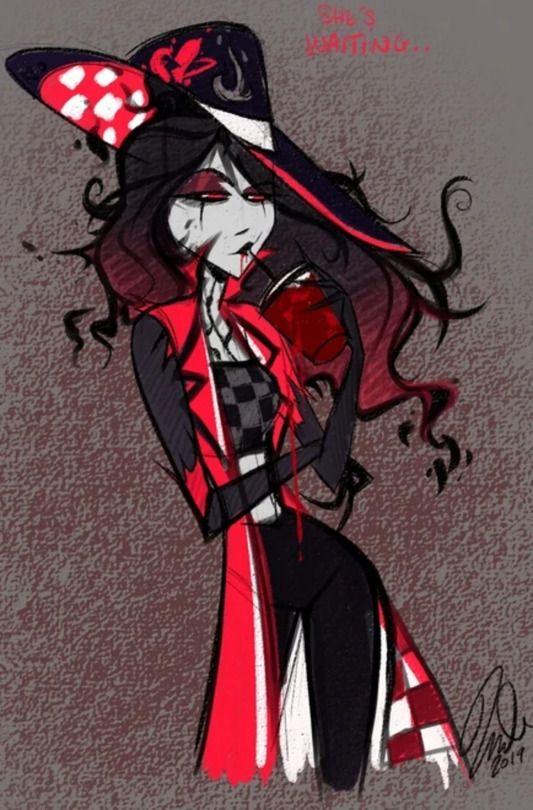
However, "Roo" itself is depicted as possessing the body of a human woman, presumably Eve, the first one to eat the "fruit of knowledge":
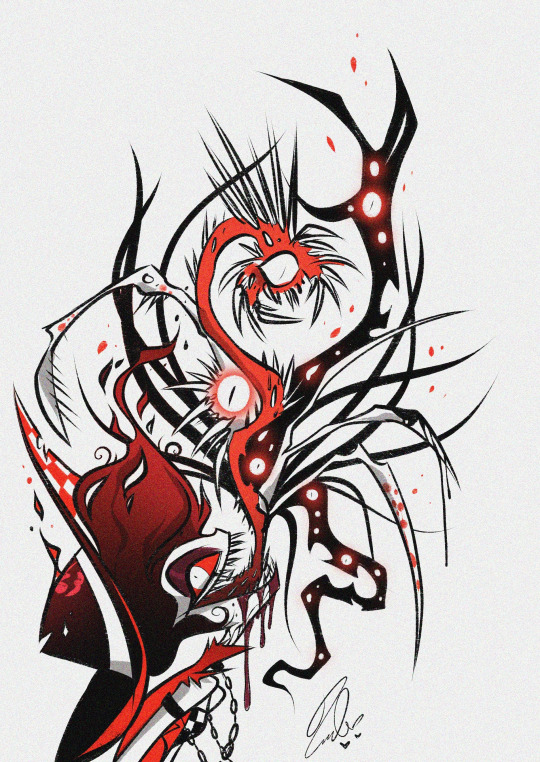
Thus, we can discern that "Malus" likely refers to this character. (Also see: "Maleficent", a name that also uses the root word "mal", "evil".) As for Roo's intentions, if Charlie is "good" - and, if, in fact, Alastor was sent by "Roo" (Eve) - then they may want for Alastor to work on their behalf to "corrupt" Charlie, or make sure the hotel never succeeds.
This is because demonic power is tied to human souls, and there are "millions of souls" in Hell, which likely fuels the great power of "Roo". The more souls there are in Hell, the more powerful "Roo" becomes. The Overlords also get their demonic power from "millions of souls".

The deal between Eve and "Roo" might even be the first contract, or deal, between a human soul and a demonic entity; in exchange for 'free will', and the knowledge of good and evil, Eve allowed the "Root of All Evil" to inhabit her body, and to escape the void or prison it was confined to by Heaven (Hell?). (For one cannot be 'all-good' unless you attempt to 'eliminate' or 'ablate' evil; and, in Greek mythology, Zeus imprisoned the Titans in Tartarus for all of their evil deeds.)
Another possibility, brought up in an article by Gillian Osborne, is that Lucifer sees the "fruit of knowledge" as an apple, but it may appear as different fruits to different people, depending on how they view it. This also fits with Lucifer and angels being able to easily shapeshift.
In Paradise Lost, only Lucifer describes the fruit as an "apple" (malus), as he associates malus with "bad, evil", while the narrator also describes the fruit as "a mix of different colors" and peach-like. This then begs the question: "Did the fruit of knowledge of good and evil become 'evil' because Eve harbored resentment towards Adam?"
Quote: "Lucifer (Satan) gives Eve yet another hint that this tree may be more complicated than he wishes her to believe: although elsewhere in Milton's poem Eden is heady with its own newness, sprouting spring flowers left and right, the tree of knowledge is already old: its trunk is 'mossie'. Nevertheless, Lucifer claims to wind himself around the tree 'soon'; the quickness of his reported arrival stands in contrast to the timescales required to cover a fruit tree with moss (PL 9.589). Placing Lucifer's winding body between these two timescales—an easeful present and the inhuman scale of natural history—Milton suggests that there is something dangerous in entangling the past with the present. Yet, 'Paradise Lost' also makes deep biblical history feel like present politics for its readers. When Adam and Eve wander out of Eden at the end of the poem, they famously make their way not only into an earthly paradise, but also into the present. Eden's mossy apple tree therefore represents the pitfalls of conflating nature and history, of seeing any action in human history—even Eve's eating of an apple—as natural, if by nature, we mean inevitability. For Milton, history, unlike nature, is directed by humans, progressive, and, like the reading of 'Paradise Lost', hard work. While trees may inevitably collect moss the longer they live, Adam and Eve's labors in the garden, and our labors of reading, require agency and effort. Milton's poem refuses mourning the loss of Eden, [and the perfection of Heaven], in favor of a perpetual, melancholic, recreation of paradise: a present perfecting."
To quote Twisted: The Untold Story of a Royal Vizier, which also draws inspiration from John Milton's Paradise Lost: "It's an unfortunate situation...but you do have a choice [i.e. free will]."
#hazbin hotel#hazbin hotel analysis#hazbin#hazbin analysis#hazbin hotel meta#hazbin meta#hazbin hotel theory#hazbin theory#deep thoughts#john milton#paradise lost#eve hazbin hotel#lucifer hazbin hotel#lucifer morningstar#adam hazbin hotel#lilith hazbin hotel#lilith morningstar#roo hazbin hotel#root of all evil
255 notes
·
View notes
Text




old town in Uppsala
147 notes
·
View notes
Text

Warnings: graphic descriptions of amputation, blood and gore, a dash of dark humour at the very end, viking themes, mentions of sacrifices
A/N: this original story was commissioned by @amelia-quining on my Ko-fi page. Thank you once again for trusting me with your request. I really hope this little fic meets your expectations ♥
KO-FI COMMISSIONS

In the far reaches of the north of Sweden, nestled amidst towering firs, rugged cliffs and ancient stones, lay the Viking settlement of Hurgå, where the chill winds carried whispers of ancient gods and forgotten rituals.
Hurgå was a quaint settlement nestled amidst the rugged terrain of the northern lands. Surrounded by dense forests and towering mountains, it exuded an aura of rugged beauty and ancient mystique. The village consisted of sturdy wooden structures, their roofs adorned with thatch, blending seamlessly with the natural landscape. Narrow dirt paths wound their way between the buildings, lined with wildflowers and patches of vibrant greenery.
In the heart of Hurgå, overlooking the settlement square, stood a modest yet revered structure: the temple dedicated to the glory of Odin, the Allfather. Built with sturdy timber and adorned with intricate carvings depicting scenes from ancient legends, the temple served as a focal point for the spiritual life of the community.
Hurgå was a place of untamed beauty and unyielding harshness, where the whispers of ancient gods still lingered in the crisp mountain air, and where the people revered the old ways with unwavering devotion.
Among them was Åse.
The girl, in her mid-20s, possessed a striking appearance that captivated those around her. Her long, lustrous ginger hair cascaded down her back, framing her delicate features. Emerald eyes sparkled with intelligence and depth, drawing others into their gaze. Freckles adorned her nose and cheeks like constellations against her porcelain skin, as pale as moonlight, that felt soft and smooth to the touch, like freshly fallen snow. Despite her slender frame and lack of height, there was an undeniable allure to her presence, and many young men found themselves enchanted by her beauty, but alas, their affections remained unrequited. As a devout priestess of Odin, her heart belonged solely to her divine calling, and no earthly suitor could sway her dedication.
Åse was not like the other women of Hurgå. While they busied themselves with domestic chores and tending to the hearth, she sought knowledge and enlightenment in the shadow of the temple built for the glory of Allfather. Her dreams were filled with visions of the future, and she longed to become a seer, a vessel through which Odin's will could be known.
During the summer solstice, when the boundaries between the hominal realm and the divine were said to blur, Åse made the pilgrimage to Uppsala, the sacred center of worship for the northern tribes. There, amidst the throngs of pilgrims and the intoxicating scent of burning incense, she partook in the sacred rituals and consumed the potent hallucinogenic brew offered by the temple priests that would allow her to transcend the mortal realm.
As Åse consumed the potent hallucinogenic brew, the world around her began to shift and warp, blurring the lines between reality and the ethereal. Colors danced before her eyes, swirling and merging into intricate patterns that seemed to pulse with life. Her senses heightened, and she felt as though she were being pulled into another realm.
In her trance, Åse found herself standing in a vast, mist-shrouded forest. The air was thick with the scent of pine and soggy earth, and a sense of ancient wisdom seemed to permeate the very atmosphere. As she walked deeper into the forest, she felt a presence watching her, a powerful and otherworldly presence that seemed to emanate from the very trees themselves.
Amidst the haze, a figure began to materialize before her. He stood tall and imposing, his form wreathed in ethereal light. His features were sharp and regal, with piercing eyes that seemed to hold the wisdom of the ages. Though she had never beheld a man so fine in her life, she felt an unmistakable sense of recognition, as if she had known him in some distant time or place. It was him. It was the Allfather.
With a voice barely above a whisper, the girl spoke, her words tinged with gratitude. "Thank you, my lord," she murmured, her voice barely audible amidst the swirling energies of the trance. "For your guidance and your presence in my mere life."
"Daughter of the north," the man spoke, his voice resonating with power. "You have come seeking knowledge and guidance. Ask, and I shall provide."
"Great Allfather," Åse began, her words echoing in the sacred space. "I seek your knowledge and your blessing. I wish to become a seer, to dedicate myself fully to your teachings and to serve you with all that I am."
When he spoke, his voice was like thunder rolling across the heavens, yet infused with a gentle warmth that enveloped Åse like a comforting embrace. "My child," he replied, his words resonating deep within her soul, "Your heart is pure, and your spirit is strong. I grant you my blessing and the gift of sight. May you use it wisely, and may your visions guide you on the path of enlightenment."
With those words, Åse felt a profound sense of connection to the divine.
Odin's voice echoed in her mind once again, his gaze piercing through her very soul. "But such power comes at a price. Will you prove yourself worthy, my child?"
With unwavering determination, Åse knelt before the man, her heart pounding with anticipation. "I am all yours to command, Allfather," she declared, her voice resolute.
"To wield such power, one must prove themselves worthy," the god intoned, his one-eyed gaze piercing into Åse's very soul. "Are you prepared to make the necessary sacrifice?"
Åse's heart pounded in her chest as she contemplated the weight of Odin's words. This was no simple bargain; it was a test of her dedication and resolve. But deep within her, she felt a stirring, a flicker of determination that burned brighter with each passing moment. "I am," she declared, her voice steady despite the tremble in her limbs. "I will give all that I am, if it means serving you, Allfather."
A solemn nod from Odin confirmed her choice, his presence seeming to fill all of her being with an otherworldly aura. "Then let it be done," he commanded, his tone both solemn and commanding.
Suddenly, Åse's vision blurred and the world around her seemed to fade into darkness. She felt herself falling, tumbling into a black abyss of oblivion, her senses overwhelmed by the weight of her decision. Time lost its meaning as she drifted in the void, her mind awash with visions of the future and the divine presence of the Allfather.
When she finally awoke, it was with a sense of disorientation, her head swimming with dizziness. But even as she struggled to steady herself, there was a newfound certainty burning within her soul. She knew, without a doubt, that what she had experienced was real, as real as her own flesh.
Determined to fulfill her destiny, Åse made her way to the highest priest of Uppsala, her steps unsteady but resolute.

Odin's temple in Uppsala stood as a grand testament to the reverence and awe inspired by the ancient deity. The temple itself was a structure of grandeur and majesty, constructed of sturdy timber beams and adorned with intricate carvings depicting scenes from Norse mythology. Massive wooden doors, carved with symbols of Odin's authority, guarded the entrance, inviting only the most devout worshippers to pass through.
Inside, the temple's interior was bathed in the warm glow of flickering torches, casting dancing shadows across the polished stone floors. The air was heavy with the scent of burning incense, mingling with the earthy aroma of the surrounding forest.
At the heart of the temple stood a great altar, adorned with offerings of mead, bread, and other treasures laid out as gifts to the Allfather. Above it, a towering statue of Odin loomed, his piercing gaze seeming to follow the movements of those who entered.
Around the altar, worshippers gathered in reverent silence, their faces upturned in prayer and supplication. The atmosphere was charged with a palpable sense of reverence and devotion as pilgrims sought to commune with the divine and receive the blessings of the Allfather.
As Åse entered the sacred halls of the temple, she soon was led to the back of the temple by an elder woman, and upon entering the chamber of the highest priest, she felt meaningless.
The priest, adorned in ceremonial robes and wreathed in the flickering light of candles, regarded her with solemn gravity. "Åse," he intoned, his voice a low rumble that echoed off the stone walls of the chamber.
Surprised by the priest's knowledge of her name, the long-haired girl furrowed her ginger brow in confusion. "How do you know my name?" she asked, her voice tinged with curiosity.
The priest regarded her with a knowing gaze. "Child," he said, his voice grave and solemn, "The Allfather sees all and knows all. He has watched over you since the day you were born, guiding your footsteps and weaving the tapestry of your destiny, leading you to this exact place."
Åse's eyes widened in astonishment at his words, a shiver coursing down her spine. "The Allfather..." the ginger murmured, her mind reeling with the implications of his revelation.
The priest nodded solemnly, his expression unreadable. "Indeed," he replied. "He has chosen you for a great purpose, Åse. Embrace your destiny, for it is a path that few are privileged to walk. Now, tell me, my child, what did you see in your vision?”
She recounted her vision. With each word, she felt the weight of her commitment grow heavier, yet she knew that she was ready to embrace whatever fate awaited her. She had never felt so chosen, yet the weight of her destiny felt heavy upon her shoulders, so she regarded the man’s words with a single nod.
"You have come seeking the blessing of the Allfather, but know that the path you tread is one of great peril."
Åse nodded, her gaze steady as she met the priest's solemn gaze. "I understand, honored one. I am prepared to make this sacrifice."
The priest inclined his head in acknowledgment, his expression grave. "Very well. You understand the magnitude of what you are about to undertake. This path is one of solitude and sacrifice, and none may accompany you on your journey."
Åse swallowed hard, steeling herself for the ordeal ahead. "I will not falter," she vowed, her voice ringing with pure determination. "I will see this through to the end."
“What did you offer to Odin himself in exchange for his favor?" the priest inquired, his voice low and grave.
Åse squared her shoulders, meeting the man's gaze with determination. "I offered my left arm," she replied, her voice steady despite the tremor in her heart.
The man placed a hand on her shoulder, his touch a silent benediction. "May the gods grant you strength and wisdom in the trials ahead. You walk a path that few dare to tread, but know that you do so with their blessing."
The priest's movements were deliberate as he approached a small box resting on the desk, surrounded by flickering candles. With a solemn air, he opened the lid, revealing the sacrificial knife nestled within. The blade gleamed in the dim light, its sharp edge catching the glow of the candles.
Carefully, the man lifted the knife from the box, wrapping it in a linen cloth before handing it to Åse. "This is the tool of your sacrifice," he said, his voice low and solemn. "To fulfill your oath to Odin, you must wield it with purpose and conviction."
He placed the knife gently into Åse's open hands, his touch reverent. "Remember, Åse," he continued, his words weighted with significance, "The sacrifice you make tomorrow will bind you to Odin's will for eternity. Use the blade wisely, for it is a symbol of your destiny."

On a crisp dawn, Åse knelt before the towering statue of Odin, her heart pounding with anticipation. She was about to make the ultimate sacrifice, a testament to her love and devotion. Clad in a simple white shift, her left arm was bare, the spot where it would be severed was marked with a rune of courage.
Åse began her prayer, her voice echoing in the silent temple.
“Hinn almáttki Óðinn, Alföðr, heyr minn bæn. Veit mér styrk og hugrekki til að takast á við þessa áskorun, til að fórna af sjálfum mér í þínu nafni."
Åse's fingers wrapped around the sacrificial knife, its weight heavy in her palm.
The blade gleamed with a deadly sheen, its edge honed to a razor-sharpness that promised swift and merciless precision. Adorned with ancient runes, the handle pulsed with an otherworldly energy, each symbol whispering secrets of power and sacrifice. It was a weapon of old, forged in the fires of tradition and steeped in the blood of ages past. And now, it awaited its next offering, hungry for the flesh that would feed its ancient hunger.
With a steady hand, Åse tested the blade's edge, marveling at its keenness as it sliced effortlessly through the skin on the pad of her left index finger. Åse hissed as the sharp blade met her skin, a bead of crimson welling up from the shallow cut. The sting of pain was sharp and quick, but she gritted her teeth and pushed through it, her determination unwavering. This sacrifice was necessary, a small price to pay for the knowledge and power she sought.
As she prepared herself for the task ahead, Åse knew that this blade held the key to her destiny. With its bite, she would carve her path into the annals of history, marking herself as a vessel for the divine will. And though her heart trembled with fear, her resolve remained unshaken, for she understood the importance of the sacrifice that lay before her.
She hadn't conducted any prior research, but fortunately, one of her closest friends, Helga, had assisted a healer back in Hurgå. Åse had witnessed a few instances where limbs were amputated due to the severe injuries sustained by their warriors in battles against Christians or other settlements.
Åse scolded herself inwardly, chastising her own hesitance. "Foolish," she thought, a twinge of uncertainty began to creep into the recesses of her mind, gnawing at her resolve like a relentless predator stalking its prey. "Every moment wasted is another moment of doubt and hesitation. Allfather awaits my sacrifice, and I cannot afford to falter now."
Gripping the sacrificial knife tightly in her hand, she positioned it just at the crook of her left elbow. Her emerald eyes shone with anticipation. With a shaky exhale, she pressed the blade against her skin, feeling the cold steel bite into her flesh with a sickening crunch.
The first incision was precise, the sharp edge of the blade slicing effortlessly through the layers of dermis and epidermis. A jolt of excruciating pain shot through her arm, causing her to scream in the overwhelming agony. Sweat beaded on her ginger brow as she fought to steady her trembling hand, each movement of the blade sending shockwaves of torment coursing through her body. Gritting her teeth against the pain, she summoned every ounce of determination she possessed and began to saw through her flesh.
As the blade penetrated deeper, the resistance was greater, the tissue denser, but the blade pressed on, its edge biting into the flesh with a relentless determination.
A white-hot agony threatened to overwhelm her completely.
With each sawing motion, Åse felt a searing pain shoot through her arm, radiating outward from the point of contact. The nerves screamed in protest as the blade severed them, sending waves of agony coursing through her body. Blood welled up from the wound, flowing freely down her arm and pooling on the ground below.
As the blade cut through muscle and sinew with alarming ease, Åse could feel the resistance give way, the tissue parting like silk under the blade. The sound of tearing flesh filled the air, accompanied by the sickening sensation of her own thick blood coating her skin.
With each agonizing cut, she felt a piece of herself being torn away, sacrificed in the name of her destiny. The sound of her own labored breathing filled the air, punctuated by the wet, guttural sound of flesh being torn asunder. Her entire being was screaming in protest as she fought to keep moving.
The metallic tang of blood filled the air, mingling with the acrid scent of burning incense. Her hands slick with blood as she worked to complete the grisly task.
With a steady hand, the ginger girl applied more pressure to the blade. There was a sickening sensation as the blade sliced through muscles and tendon, but she pushed past it. With a deft movement, she twisted the knife, using its keen edge to pry apart the joint.
Finally, with a final, decisive stroke, there was a soft pop as the joint gave way, and Åse's arm fell down to the floor with a sickening thud, leaving a gaping wound in its wake. Blood poured from the stump, staining the ground and her robes crimson as Åse crumpled to the floor to her knees, her vision swimming with pain and dizziness, her body wracked with pain and exhaustion. She had done it. She had made the ultimate sacrifice.
In that moment, she felt a surge of power unlike anything she had ever known, and she knew that the Allfather was offering her a gift beyond imagining. And then a shroud of darkness descended upon her, swallowing her whole.

Åse didn't know how long she had been unconscious, or if she had crossed the threshold into death itself.
Slowly, she opened her eyes, blinking against the sudden brightness that stung her vision. Blinking away the discomfort, she took in her surroundings, and realized she was lying on a small bed, adorned with furs. The air was thick with the scent of incense and the pungent aroma of mead.
After a few moments of disorientation, Åse tentatively turned her head to the left. With hesitant movements, she lifted the fur covering her upper shoulder, revealing the neatly wrapped bandages that concealed the absence of her forearm. The absence of her limb sent a shiver down her spine, yet she could still feel its phantom presence, a sensation that made her gasp.
Tears welled in her eyes once more as she gently laid her head back against the pillow. "Thank you, Allfather," she whispered, her voice barely audible in the quiet chamber.
The door creaked open, and an elderly woman entered the room, carrying a bowl filled with fresh bandages. With a gentle smile, she approached Åse's bedside. "You've been unconscious for nearly two weeks, child," the woman said softly, her voice filled with concern. "Many feared you wouldn't make it.”
Åse listened in stunned silence as the woman continued, explaining that her offering had been presented at the altar of Odin and later burnt alongside other tributes. The girl then inquired about when she could return home.
The woman offered a sympathetic smile. "That depends on how quickly you recover, my dear. But rest assured, we will do everything we can to aid your healing."

Åse returned to her settlement, Hurgå, greeted by the shocked and concerned faces of her fellow villagers. Whispers spread like wildfire as people noticed her armless state, and many approached her, their voices trembling with worry.
"Åse, what happened to you? Were you attacked on your trip to Uppsala?" they asked, their eyes wide with fear.
But Åse simply smiled, her demeanor calm and serene despite the questions. "No, I wasn't attacked," she reassured them. "It was an offering I made to the Allfather."
Some of the villagers exchanged skeptical glances, murmuring amongst themselves about her supposed delusions. They couldn't fathom why she would believe that Odin would accept such a lousy sacrifice.
Yet Åse remained undeterred, her faith unwavering as she returned to her daily life, determined to fulfill her destiny, no matter the cost.
Her best friend, Helga, rushed to greet Åse as well as soon as she spotted her. Her eyes widened in shock as she took in Åse's armless form, unable to hide her dismay. “Åse, what happened to you, sweetie?!"
The ginger slowly nodded her head. "Well, you know how I've always been a bit too giving," she joked, a wry smile playing on her lips. "I guess I just gave a little too much this time,” she let out a soft chuckle, attempting to lighten the mood despite the gravity of her situation.
Helga shook her head in disbelief, struggling to find the right words to express her shock, shaking her head dismissively. "I... I don't know what to say," she stammered, at a loss for words. "You've always been the crazy one," the other woman murmured, her voice tinged with emotion. "But I'm glad you're back, Åse. I missed you.”
Åse gave her friend a genuine smile. "Don't worry about it, Helga," she said with a reassuring smile. "I just made a sacrifice for something greater. It's all part of my journey."
And though some may have viewed her sacrifice with horror or pity, Åse wore her scar with pride, a testament to her unwavering devotion to the gods.
To Åse, the absence of her arm wasn't a sorrowful event, but a mark of pride, a testament to her commitment to Odin and her readiness to give for a noble cause. As she faced the days ahead with a clearer vision and renewed resolve, she understood that her decision was one she'd never rue. By sacrificing a piece of herself, she'd acquired something profound - a bond with the divine and a destiny that would guide her path forevermore.
#original female character#original fiction#original character#original story#fiction#viking themes#kofi commission#writing commission#writing commission open#dark fic#dark themes#original writing#writers on tumblr#tw blood#divider by cafekitsune#original one shot#my writing#my original writing
60 notes
·
View notes
Text
CK3 Norse Dress Uppsala

Converted from Crusader Kings 3 and adapted for Sims 4, this is a suitable dress for your schamans and norse priestesses - the priestess version is available for kids to elder sims. All ages get the plainer version, without decorations. This version works well for all medieval sim times and many other eras.
Named after the Swedish town Uppsala, (Old) Uppsala was the main pagan centre of what is Sweden today, and the Temple at Uppsala contained magnificent idols of the Norse gods.
All credit for the mesh and basic texture to CK3/Paradox!
HQ textures, many swatches.


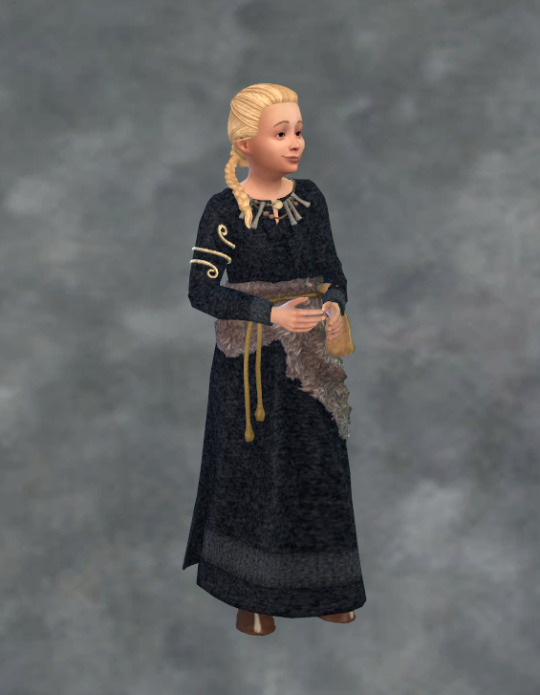
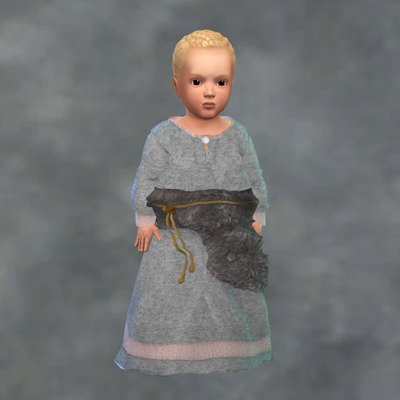
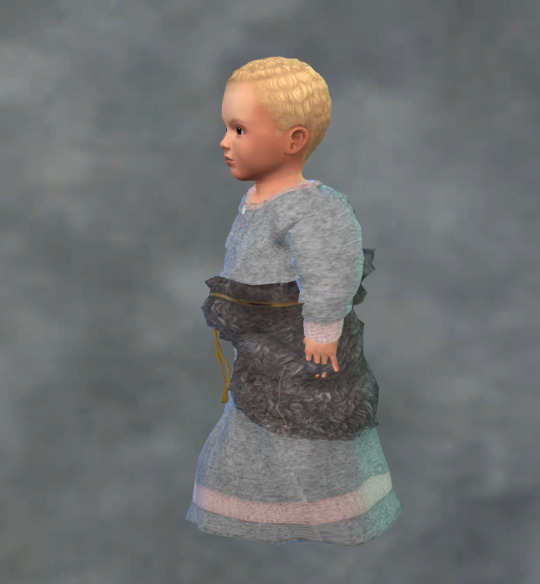


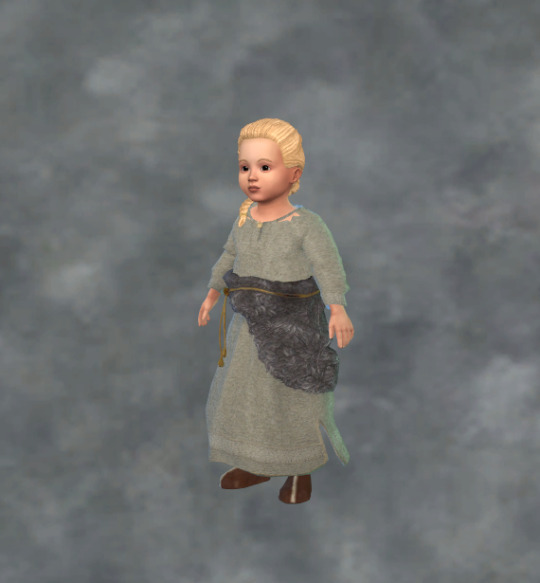

Plain, kids and toddler's versions get their textures from the adult priestess version. All merged in one file, if you want to edit or remerge, unmerge first.
Download CK3 Uppsala Dress for All Ages (Curseforge)
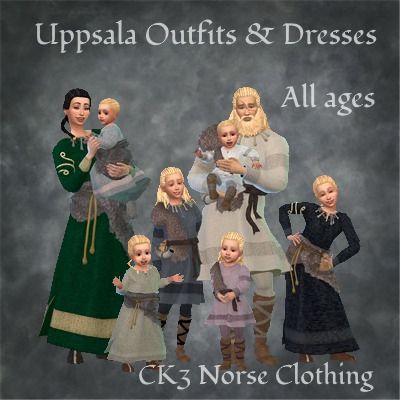
120 notes
·
View notes
Note
Joy
So many to pick for this! you'll forgive me if I do another one in Spanish, but every Advent I'm reminded and mourn the fact that when the Mass was translated, the word used for gospel was evangelio from the Greek root, rather than the Hispanic-Arabic albricias (which has the same meaning), and there's this one very old carol from the Uppsala song book which includes it and also has the classic call-and-response of Spanish Christmas carols:
youtube
One: give me joy, children of Eve! All: Tell us, why should we? One: 'Cause the new Adam is born! All: oh, the Son of God, what great news! Ones: give me joy and rejoice yourselves Others: Because tonight is born Ones: the promised Messiah Others: God and man of woman begotten.
Ones: And his birth releases us Others: From sin and its toil Ones: 'Cause the new Adam is born!
All: oh, the Son of God, what great news!
Send me an ask with a Christmas vibe word (loosely understood), and I'll recommend you a Christmas carol.
9 notes
·
View notes
Text










Doors, Gates and Windows (No. 47)
Galtströms Bruk & Herrgård AB, S (three pics)
Gamla Uppsala, S (two pics)
Tyresta National Park and Nature Reserve, S (three pics)
Tyresö Palace, S (two pics)
#Galtströms Bruk & Herrgård AB#travel#original photography#vacation#tourist attraction#landmark#cityscape#architecture#detail#façade#door#window#exterior#gate#nature#balcony#flora#Sweden#Sverige#Scandinavia#Northern Europe#summer 2020#Church of Old Uppsala#Gamla Uppsala#Uppland#Tyresta National Park and Nature Reserve#Stockholm County#Tyresö Palace
4 notes
·
View notes
Note
Hey! Its me again! :D
I love the fact that Reader plays a ukulele to distract themselves away from their thoughts, it's wholesome oml.
*THE TOXIC GOSSIP TRAIN FLASH BLACK*
(ALSO Your post abt Zoro and reader is so funny and gives me the giggles- I love platonic one piece ITS SO UNDERRATED)
Anyways, I have a few random memes and incorrect quotes for your reader and the Determination! Series! Hope you'll like it! :)
———————
*this takes place after Zoro just joined Luffy's pirate crew and Reader is tagging along*
Luffy : Hey Zoro! I just have one question for you
Zoro : What is it Luffy? *His arms behind his head trying to nap*
Luffy : What color is an orange?
Zoro : Luffy you bonehead, the color is just the same as its name. Just like a lemon *he is proud of himself*
Reader : *questioning their decisions*
———————
Crewmate : You're smiling. What happened?
Young!Buggy : What? Can't I smile just because I feel like it?
Reader : Shanks tripped and fell down the stairs today. *Treating shanks broken nose*
Young!Shanks : *with a broken nose* >:( jerk (to Buggy)
: You lying, cheating, piece of shit!
————————
* they're eating dinner*
Reader : Can you pass the salt?
Shanks : *throws Buggy across the table*
— 🛎️ Anon!
Hi!!!!!!
Never thought I’d be getting the honour incorrect quotes for my series from someone else : D
I shall also post some as well
Nami: Every time I hear someone talking about updog, I’m torn between not wanting to fall for it and wanting to help them complete their joke.
Luffy: Okay, but what is updog?
Sanji: Updog is a long sausage in a bun, often served with ketchup, mustard, onions, and/or relish.
Ussop: No, that’s a hot dog. An updog is when a new version or patch of an application is released.
Y/n: No, that's an update. You’re thinking of the fourth largest city in Sweden.
Zoro : Surely, that’s Uppsala, where’s updog is the giant spider in Harry Potter.
Nami: That’s Aragog. Updog is a symbol conventionally used for an arbitrarily small number in analysis proofs.
Ussop: You’re thinking of epsilon. Updog is an upward-moving air current.
Zoro: No, that’s an updraft. An updog is the modern version of a henway.
Luffy: What’s a henway??
Nami: Oh, about five pounds
===
*Squad reactions to being told ‘I love you’*
Y/n and Luffy: Thanks fam!
Ussop: Oh no.
Zoro: Sounds fake, but okay.
Sanji: *A flustered mess*
Nami : Can I get a refund?
===
Ussop: Imagine if someone handed you a box full of all the things you lost throughout your life.
Zoro: It would be nice to have my sense of purpose back...
Y/n: Oh wow, my childhood innocence and My will to live! I haven't seen these in years.
Sanji : I knew I lost that potential somewhere.
Nami: Mental stability, my old friend!
Ussop: Jesus, could you guys lighten up a little?
===
Y/n: *dies*
Luffy: Timer starts now! When are they coming back? I say two months!
Zoro: Bullshit. One month.
Ussop: Nah, half a month.
Sanji , sobbing: WHAT ARE YOU DOING? Y/N JUST DIED!
Nami, scratching chin in thought: One week.
(This one is wayyy to real lol)
===
*after the Squad has been separated for a few years*
Luffy: So what have you been up to recently?
Zoro: Leading a revolution with Sanji.
Luffy: Good for you two! Me, I've joined the mob.
Zorro: *nods* Oh, how cool! That's awesome!
Luffy: I know! Anyway, have you heard from the others? Y/n ?
Zoro: Happily living as a hermit in the woods. Ussop?
Luffy: Wrongfully locked up in an asylum, which reminds me, we need to break them out later. Nami?
Zoro: Cult leader.
Luffy: Yeah, that sounds about right.

50 notes
·
View notes
Text
Christine Daae and her performing arts education
Christine was educated in professional performing arts growing up. First by her parents, then by her old performing arts school in Uppsala until her adoption in Paris, then her 10 years at the Paris Theatre Conservatory
Throughout her performing arts education, Christine learned music reading, playing the piano and cello, opera singing, theatre studying and rehearsing, and ballet, skills that can help her become an opera star in the future
Christine is at first somewhat shy in her new environment. But gradually, with some help from her loved ones in Paris, she began to make several new friends


7 notes
·
View notes
Text


My road trip friend asked me if I wanted to join him for a trip to Uppsala yesterday, which I gladly did because Uppsala is probably one of my favorite Swedish cities. Lots of old, beautiful buildings, two comics shops, and not as big and crowded as Stockholm. We also stopped by at Old Uppsala and walked around the Royal Mounds, burial mounds from the 6th century CE that according to folklore were the resting places of the gods Thor, Odin and Freyr. In the 19th and 20th centuries it was speculated that the semi-legendary kings Aun, Egil and Adils were buried in them.
44 notes
·
View notes